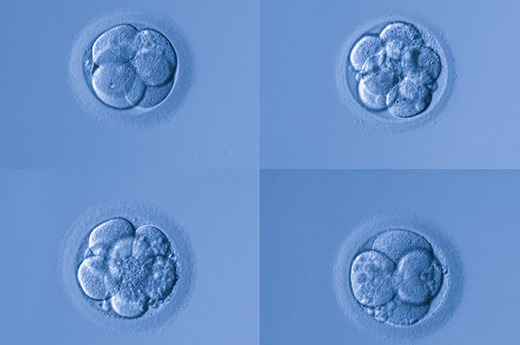When it comes to IVF procedures, grading of the patient couple’s embryos is an integral part of the treatment. At IVF Access, we follow stringent SOPs to make sure the right grade is assigned to each of the embryos growing in our lab. Our expert Embryologists use multiple assessment criteria to comprehensively grade embryos at each stage of their growth. This allows IVF Access to determine the exact time to transfer as well as in selecting the highest quality embryos to transfer
One of the most debated questions is on the choice of Day of Embryo Transfer, i.e., 3 days after growth (D3) or 5 days after growth (D5). And whether the choice of Day has any impact on success rates. While there have been retrospective studies which prefer a Day 5 transfer over a Day 3 transfer, this is still a contentious topic.
- According to the Cochrane review of 2009, there was a significant difference in live-birth rate for couples who underwent a blastocyst (or Day 5) transfer. However, this was observed in good prognosis patients only
- Now one of the parameters that we observe & monitor closely is the number of 8 cell embryos on Day 3 (An 8 Cell embryo is considered as a good benchmark of embryo quality). The number of blastocysts, the expanded stage of the blastocysts and the blastocyst rate always increases with the number of 8 cell embryos on Day 3. At IVF Access, one of the criteria to decide on the day of embryo transfer is decided based on this parameter.
- Patients having a low number of 8 Cell embryos are advised for a Day 3 Transfer
- Patients with higher number of 8 Cell embryos are advised for a D5 Transfer. This has been proven to show better results for statistically younger patients as per the research done by Racowsky et al in 2000
- Another criterion to use Day 5 Transfer is for patients who need to biopsy embryos for genetic analysis. We also advise Day 5 Transfer for patients with repeated pregnancy failure, and/or miscarriages, and older age groups
While there are two main criteria to assess embryo quality, i.e., Inner Cell Mass (ICM) and Trophectoderm (TE), each criterion must be assessed individually and then grouped to score embryo quality. A recent study analyzed a large group of patients who had a successful outcome with blastocysts of different qualities ranging from poor to excellent (Chin J et al in 2018).
- TE plays a critical role in embryo implantation and release of human chorionic gonadotrophin and more effectively initiate maternal-foetal communications. A biopsy of TE cells helps us in finding genetic aberrations. And it is an important determinant for euploid embryos.
- ICM, on the other hand, has been shown to promote TE cell proliferation and it ultimately forms the fetus
- Therefore, IVF Access uses both parameters ICM and TE to aid in the selection of high-quality euploid blastocysts for transfer. An average of 62% pregnancy rates were obtained in this study with A/B grade TE and ICM single embryo transfers
Embryo grading is broadly a skill, based on rigorous criteria. However, it needs a trained eye to assess embryos. IVF Access maintains one of the most comprehensive and standardized assessment criteria to provide consistent embryo grading scales. Our highly qualified team of Clinicians and Embryologists work closely together to ensure the highest possible outcomes by carefully transferring only the best quality embryos


Leave a Reply